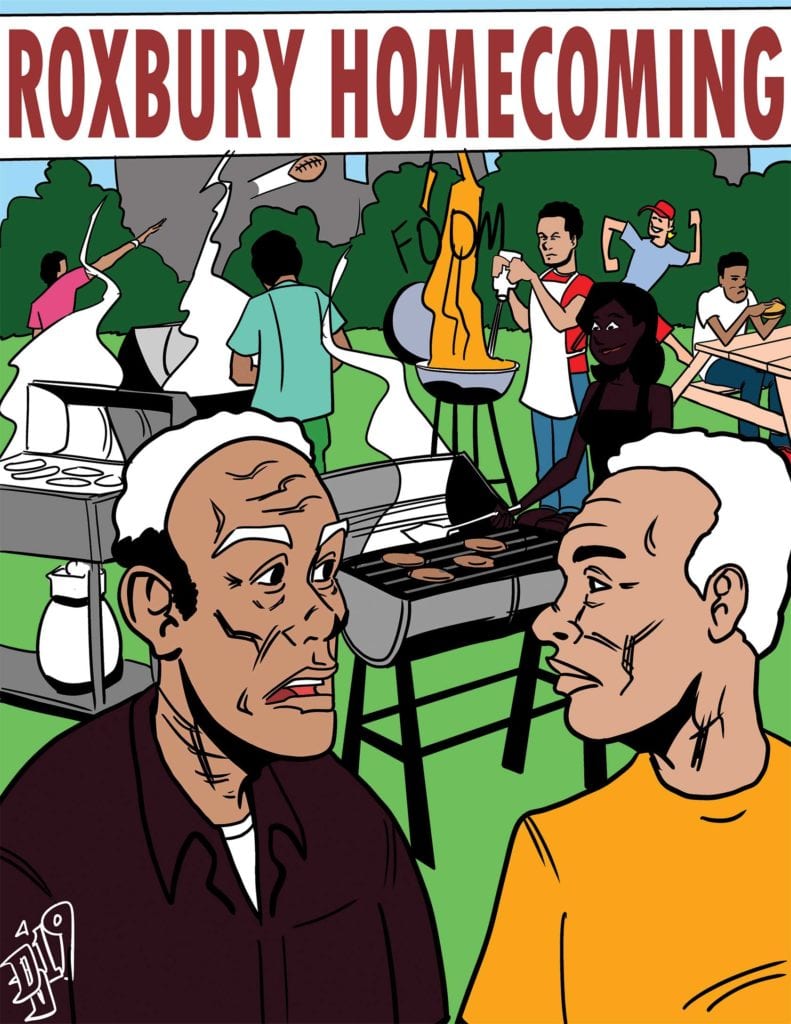
The Roxbury Homecoming — Juneteenth Festival in Franklin Park was extremely well attended last Saturday. In fact, there were more people than could be comfortably accommodated in the area near Shattuck Hospital. Indeed those who were able to establish a campsite for friends and family were able to enjoy the camaraderie of the day.
Over the years, Roxbury has been such a supporting community for black residents that it was decided some 20 years ago to gather annually on the second Saturday in June. This was preferable to assembling for funerals or other somber occasions. Many who had left Boston to pursue their careers elsewhere would return to greet and reminisce with their old friends and neighbors.
There are some who mistakenly believe that Roxbury is the ancestral home of blacks in Boston. Blacks did not move to Roxbury in significant numbers until the middle of the 20th century. Prior to that, blacks lived on the North Slope of Beacon Hill and the West End. The black population in that area was 2,935 in 1890 but had fallen to only 1,500 by 1910.
Higher rents on Beacon Hill forced blacks to move to the suburbs or to the South End and lower Roxbury. By 1910, about 40 percent of Boston’s black population lived between Northampton and Ruggles Streets. The introduction of public transportation made the Hill area accessible. Prior to that, Walnut Ave, Elm Hill Ave and the side streets contained country houses belonging to wealthy Bostonians who could maintain a horse and carriage.
Back in the day, Roxbury’s population was multi-racial. When the City of Boston closed the local high school, Roxbury Memorial, in 1960, the student body was 45 percent black, 45 percent Jewish and 10 percent Irish, Italian and others of European descent. But 50 years later, hundreds of the 1960 alumni gathered for a belated class prom and reunion.
Much of Roxbury’s old spirit has dissipated but its history and geographic location to downtown Boston will nonetheless generate an affluent future development.






